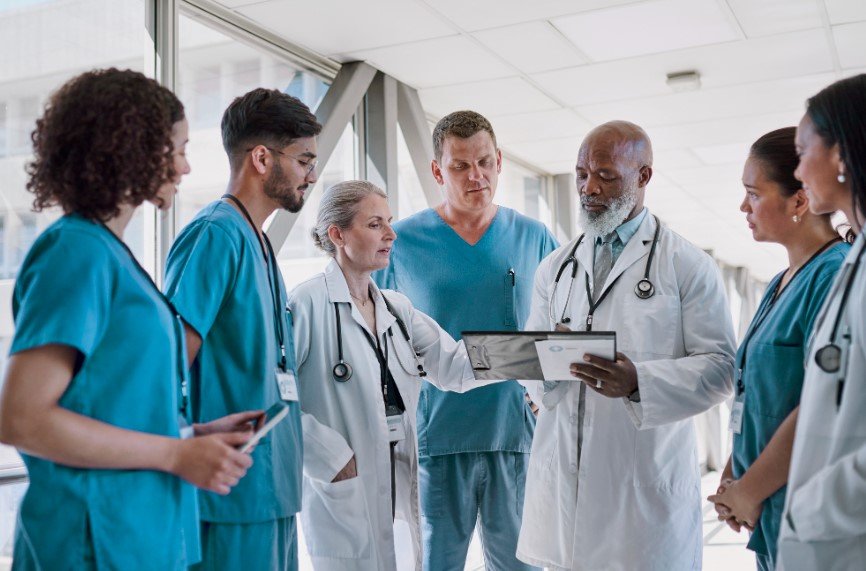A six-week research program at Georgia Cancer Center is quietly making waves. What started small three years ago has now grown into something that’s catching international attention—and shaping the next generation of cancer researchers.
From Local Lab to Global Stage
When the Georgia Cancer Center kicked off its Summer Research Experience back in 2022, the idea was simple: give a handful of local students an inside look into real-world cancer science. Fast forward to now, and the story’s very different.
This summer, the program received close to 100 applications. And no, not just from Georgia. Some came from other countries—unsolicited. No formal international recruitment, no big marketing push.
“They just found us online,” said Dr. Rhea-Beth Markowitz, Director of Grant Development at the center. “We assumed they had a family connection here, but they didn’t. They just wanted in.”
The number of participants has nearly doubled since the first cohort, but space remains tight. Especially for those applying from outside the region. It’s not just about growing big—it’s about doing it right.

Training More Than Just Scientists
Inside the six-week course, students aren’t just pipetting or logging hours in front of lab equipment. They’re also learning how to think like scientists—and speak like them.
That part’s critical.
“We want them to walk away knowing how to communicate their research,” said Markowitz. “Because science doesn’t matter if no one understands it.”
The curriculum includes everything from the basics of cancer biology to the ethical side of medical research. But it also dives into something students rarely get enough of in science education: storytelling. Sharing findings. Making connections.
And it seems to be working.
One of this year’s participants, Gloria Antoun, a rising senior at Lakeside High School, said she’s never felt more certain about her career plans. Her path might have started with family—her uncle works at the center—but it’s the work itself that’s locked in her focus.
“It’s such a great opportunity to know that your career can directly influence people and improve their lives,” Gloria said. “I’ve always loved science. But here, I’ve seen how it actually matters.”
The Bigger Mission at Play
What Georgia Cancer Center is doing isn’t isolated. It taps into a larger push by the National Cancer Institute (NCI), which has been urging centers nationwide to grow the cancer research workforce.
Markowitz says that mission was front-of-mind when they launched the program.
“These students are the pipeline,” she said. “If we don’t invest in them now, we’re going to pay for it later in missed breakthroughs and talent shortages.”
According to the NCI, the number of cancer cases in the U.S. is expected to climb above 2 million annually in the next decade. That puts more pressure on systems already stretched thin, from lab benches to hospital beds.
And programs like this could be part of the solution.
Even if most participants don’t go on to become oncologists or molecular biologists, many will likely land in adjacent fields—healthcare, public policy, biotech, or pharma.
It’s a numbers game. And right now, the math favors early exposure.
A Look Inside the Classroom
Students in this year’s class come from different walks of life—public schools, private schools, even homeschool networks. Some have family in medicine. Others, not at all. But what they share is curiosity. And commitment.
Here’s a quick glimpse into what the program offers each week:
-
Hands-on lab time with active cancer researchers
-
Workshops on scientific writing and presentation skills
-
Lectures from faculty and guest speakers in oncology, ethics, and data science
-
Team projects that simulate real research collaborations
And yes, there’s also homework.
“We treat them like young professionals,” said one faculty mentor. “Because they’re closer to that than they realize.”
| Week | Focus Area | Activities |
|---|---|---|
| 1 | Orientation & Intro to Cancer | Lab safety, research ethics, basic cell biology |
| 2 | Genetics & Tumor Biology | DNA analysis, hands-on microscopy |
| 3 | Drug Development & Testing | Case studies, pharmacological modeling |
| 4 | Communication in Science | Poster design, media training, speech practice |
| 5 | Independent Research Projects | Proposal writing, data collection, hypothesis building |
| 6 | Final Presentations | Symposium-style event, feedback from faculty reviewers |
Even with all this, students say the hardest part is wrapping their heads around how fast things can change in the lab.
One participant jokingly described research as “controlled chaos, but in goggles and gloves.”
More Than Just a Summer Gig
There’s something else going on beneath the surface here, though. For some students, this is the first time they’ve felt like their dreams were actually valid.
“I think what surprised me the most was that people took us seriously,” said one anonymous student. “I thought I’d be fetching coffee or watching from the corner. Instead, they gave us real work.”
And that kind of validation at age 17 or 18? It sticks.
That’s why faculty and staff are already making plans for year four. Markowitz hinted at possibly adding a virtual component to open access to more out-of-state students without expanding the in-person cap. They’re also exploring grant options to support stipends or housing aid, which could level the playing field for less-privileged applicants.
Still, she’s clear-eyed about keeping the heart of the program intact.
“We don’t want to just be another line on a college app,” she said. “We want to light a fire. Make them hungry. Help them see what they’re capable of.”
